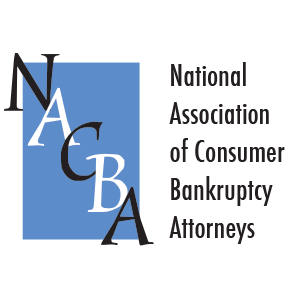It is that time again, the time when we all sit down with the accountant or the nice girl at the local tax prep place and figure it if we owe the government or if the government owes us.
Let’s start with my basic tax time rule:
A TAX REFUND IS NOT, I REPEAT NOT, A SAVINGS ACCOUNT. YOU SHOULD NOT BE TREATING IT LIKE ONE.
I don’t like tax refunds. A tax refund means you gave the government an interest free loan. I am thrilled when my accountant comes back to me and says “You owe $300.00.” That means that I got my math almost spot on. I figured out, somehow, exactly how much I needed to give the IRS and gave them only that amount. If you don’t owe, that money you are getting back, be it $500.00 or $5,000.00 was sitting in the government’s coffers earning interest for them and NOT YOU. Why? BECAUSE A TAX REFUND IS NOT A SAVINGS ACCOUNT! Uncle Sam isn’t going to pay you interest. Not going to happen.
So now is the time to ask your CPA if you should walk into HR and adjust those exemptions. Me, I am a fan of taking your exemptions. They are yours! You are entitled to a little more money in your paycheck. I am not saying walk into HR and take 17 exemptions (unless you have 17 kids…in which case you should also have a reality show). Go into HR and tell the payroll person, I am married with two kids and adjust your W-4 to Married with three exemptions instead of single with zero. It can make a real difference in your budget and you may find you have money leftover to save thanks to keeping your own money now instead of a $5,000 refund in April.
The best part, you may STILL get a refund, though slightly lower, depending on your circumstances. In New Jersey we have such high property taxes, that when combined with our mortgage interest, sales tax, charitable contributions, medicals and kids, even the guy with 17 exemptions might still have a shot at a refund (seriously what would the property taxes be on a house that fits 17 kids in New Jersey…yikes…)
So have the chat with your accountant about whether adjusting your exemptions is right for you because TAX REFUNDS ARE NOT SAVINGS ACCOUNTS….which leads to my next point…
Some of my clients tell me, “But I am not a good saver” or “If I had it I would spend it”. Ok. So find a way to not do that. My personal favorite is to make saving money super convenient, an automatic deduction into a savings account ON PAYDAY, HR can do this or you can set it up through most banks. Don’t even act like you have it. Do your budget, now is a great time to update that budget, and figure out how much you can afford to save with your new-found exemption status, and pay yourself first. If you are person that thinks if you have it you will spend it, have this automatically put into a credit union savings account two counties away from you and don’t request a debit card for the account. If getting at your savings means crossing two counties during business hours, I promise you will think twice before you make the trip.
But this is not the only thing you should be discussing at your tax appointment. Here is the list of some of the questions you should discuss with the accountant to save you money at tax time:
1. Do I qualify for an Health Savings Account? How much can I put in? What are the rules? Would this be better for my health expenses than itemizing my medicals? (Sarah learned this one the hard way….)
2. Do I qualify to deduct money I have put into a traditional IRA or should I be saving in a Roth IRA? (And the hard way on this one too…SIGH….)
3. I am married now. Does it make sense for me to file separately or jointly? Is one better than the other? What are the rules?
4. If I take money from my 401k will I be penalized? How much? What is the difference between a withdrawal and a loan?
5. How will Obamacare affect my tax bill? (Make sure to have details of your current health plan at the ready for this one.)
6. I am paying a real estate tax lien in my bankruptcy case, will that affect my tax return – (SHORT ANSWER- YES! Long answer is here.)
This is the short list. This list could go on and on and on. Things like whether to let an ex-spouse claim a child or whose name should go on the mortgage interest statement can all make big changes in your tax return and how much tax you owe every year.
Remember, this is the time of year to really evaluate your financial house and discuss it with a professional. If that professional says your financial house is falling apart maybe it is time to come see us.
If you would like to discuss how bankruptcy may assist you in getting your financial house back on track give us a call at 732-302-9600 or fill out our online consultation form and we will be happy to help you!







